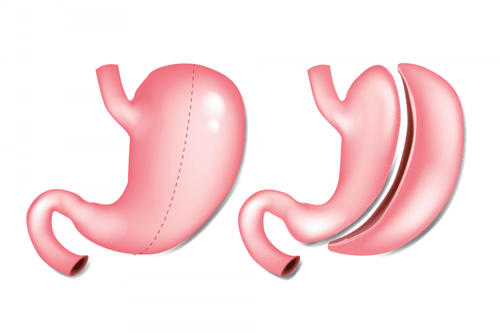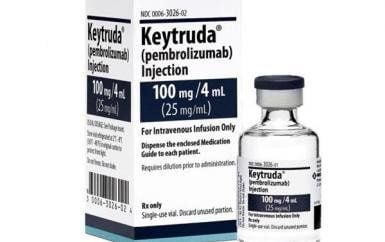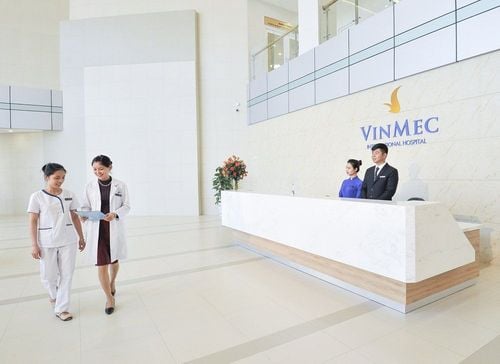This is an automatically translated article.
Stomach cancer is a common and dangerous gastrointestinal cancer with a high mortality rate. Among the treatment methods, gastrectomy due to cancer is indicated by many doctors to perform for patients.
1. General information about stomach cancer
1.1 What is stomach cancer? According to statistics, every year in Vietnam, about 10,000 people die from stomach cancer. The stomach is a digestive organ, located at the bridge between the esophagus and the small intestine. After passing through the esophagus, food goes down to the stomach and is crushed, pushed down the small intestine to absorb nutrients.
Stomach cancer is a condition in which the normal structural cells in the stomach become abnormal, multiply uncontrollably, forming a malignant tumor in the stomach, which can invade nearby organs. or metastasize to other organs in the body. Stomach cancer can progress along the wall of the stomach, reaching the esophagus or small intestine. In addition, malignant tumors can also spread through the stomach wall, invade lymph nodes, pancreas, liver, lungs, colon, supraclavicular nodes, ovaries, ...
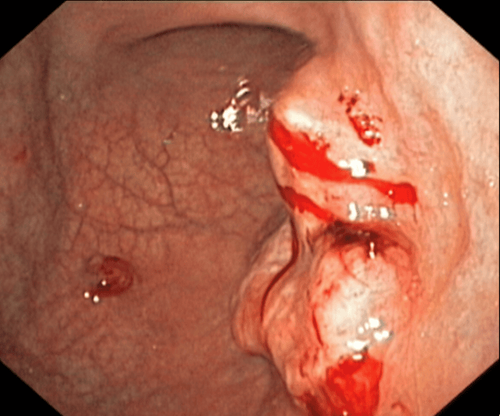
Some warning signs of stomach cancer include:
Bloody stools: This is a sign that there is swelling and inflammation from a tumor in the stomach; Frequent stomach pain: Pain is mainly in the epigastrium, the pain is often severe; Heartburn: Symptoms of heartburn accompanied by burning sensation, nausea and chest pain are one of the basic signs of stomach cancer; Loss of appetite: If a person who loves to eat suddenly loses his appetite, it may be due to a stomach tumor; Fast satiety: Often appears in the late stages of stomach cancer because the tumor in the stomach causes the abdomen to be distended, the patient quickly feels full; Difficulty swallowing: When a tumor in the stomach invades the esophagus, it will make the patient difficult to swallow, feeling like the throat is blocked, coughing, choking,...; Sudden weight loss: The loss of appetite combined with the fast-growing malignant tumor causes the patient to lose weight suddenly. Causes of stomach cancer mainly come from precancerous lesions (chronic gastritis), HP infection, lifestyle habits (eating salted, processed foods), obesity, transmission,...
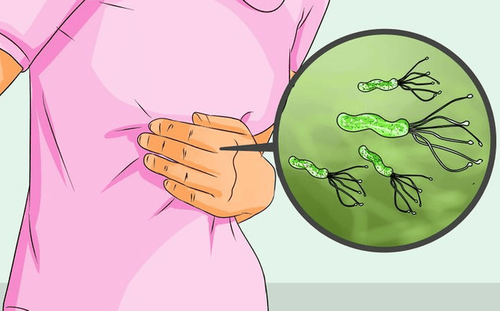
1.2 How is stomach cancer treated? Although it is a dangerous disease with a high mortality rate, stomach cancer patients have a chance to be completely cured if detected and treated at an early stage. Specifically, if the disease is detected and treated at stage 1, 80% of patients can be cured. However, if the disease is detected and treated in the late stages, the cure rate is only 5%.
The treatment of stomach cancer depends heavily on the stage of the disease and the patient's health condition. Usually, stomach cancer is treated with one or more of the following methods:
Surgery : The mainstay of treatment for early stomach cancer, which can be partially or completely surgically removed. stomach. For patients with advanced gastric cancer, temporary surgery can be performed to restore gastrointestinal circulation and prolong survival; Chemotherapy: A method of using drugs to kill cancer cells. In the early stages, chemotherapy acts as an adjunct to surgery or radiation therapy to destroy the remaining cancer cells in the body, avoiding recurrence; Radiation therapy: A method of using radioactive rays to destroy cancer cells. Radiation therapy can be combined with surgery, performed after surgery to destroy any remaining cancer cells, or used together with chemotherapy to shrink the size of the tumor, relieve symptoms of discomfort for the patient. .
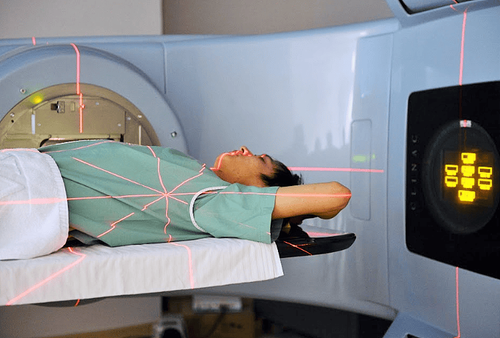
2. Overview of gastric bypass surgery for cancer
2.1 Selection of methods and scope of surgery Stomach cancer patients are usually only detected when the tumor is large, cancer cells have metastasized with different degrees, so radical surgery becomes more difficult. great number of. Before that situation, the doctor must choose the method and scope of surgery to suit each patient. After laparotomy, the doctor must check the damage of the stomach, explore other organs, judge and choose the appropriate surgical method.
To determine the method and surgery, stomach cancer is divided into 3 stages: early stage, advanced stage and late stage. Surgery in the early stages is very good, but the rate of patients detected and treated in this stage is very low. In the final stage, surgery is only a temporary option to relieve symptoms because in this stage the patient is very weak, the cancer is highly invasive, and has distant metastases. Therefore, gastric bypass surgery for cancer is mainly performed during the advanced stages of gastric cancer.
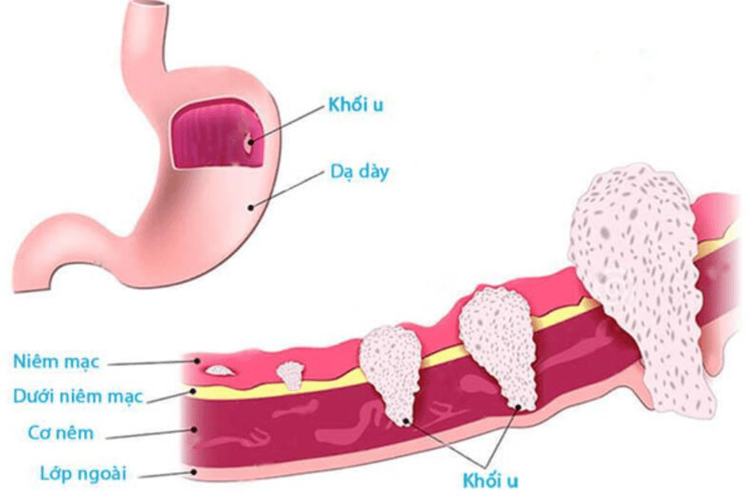
2.2 Learn 2 methods of gastrectomy due to cancer Method 1: Total gastrectomy Total gastrectomy according to the principle of gastrectomy along with some neighboring organs such as spleen, tail body of pancreas, omentum large, small omentum,...
This method has the advantage of not missing cancer cells in the stomach wall, large-scale resection of peri-gastric tissues when it is not possible to identify cancer cells that have already passed. metastasis to what extent. In other words, this is a method with good potential for radical treatment of gastric cancer, but it has many potential limitations such as: high mortality rate, loss of stomach function to store and contract food. , causing more severe post-operative nutritional disorders. Therefore, this method is only indicated when the lesion is large, the healing tissue is not much, so it must be cut off.
Method 2: Gastrectomy When the healthy part of the stomach allows, only part of the stomach needs to be removed along with lymph node dissection (or suspected metastatic cancer). The disadvantage of the gastrectomy method is that the ability to cure gastric cancer is lower than total gastrectomy. Therefore, the determination of gastrectomy and the work of cancerous lymph node dissection becomes more and more important.
Note on surgical expansion: In order to increase the possibility of radical treatment of gastric cancer, there are cases where it is necessary to remove part or all of the adjacent organs that have been invaded by the cancer organization. They are: splenectomy, transverse colectomy, left lobe resection, and pancreatic tail and body resection. Nodules that are metastatic to the back of the pancreas or suspected of having metastatic cancer must also be removed. In women, stomach cancer can metastasize to the ovaries, if both ovaries are removed.
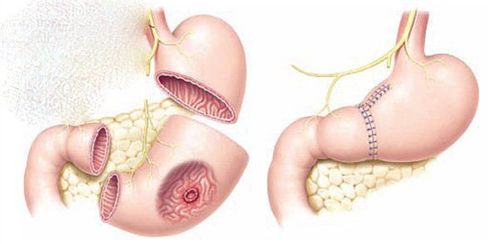
2.3 Performing gastrectomy due to cancer Option of technique
Gastrectomy is performed after general anesthesia. There are 2 gastrectomy techniques performed:
Open gastrectomy: The doctor makes a long incision in the middle of the abdomen, removing part or all of the stomach; Laparoscopic gastrectomy: The doctor makes many small cuts, using a special scope and small tools to remove part or all of the stomach. Patients with laparoscopic surgery often recover faster and with less pain than with open surgery. However, open gastrectomy is often more effective than laparoscopic therapy in the treatment of advanced gastric cancer.
Pre-operative preparation
Patient pre-anesthesia examination a few days before surgery: Blood tests, general health assessment depending on age and accompanying pathology, ensuring adequate health during surgery; Patients should bathe the night before surgery and morning of surgery with Betadine antiseptic solution; From the night before the surgery, the patient must abstain from eating or drinking, except for drugs allowed by the doctor to use with a little water on the morning of the surgery. In patients with pyloric stenosis (obstruction of gastric outlet), gastric lavage is required.
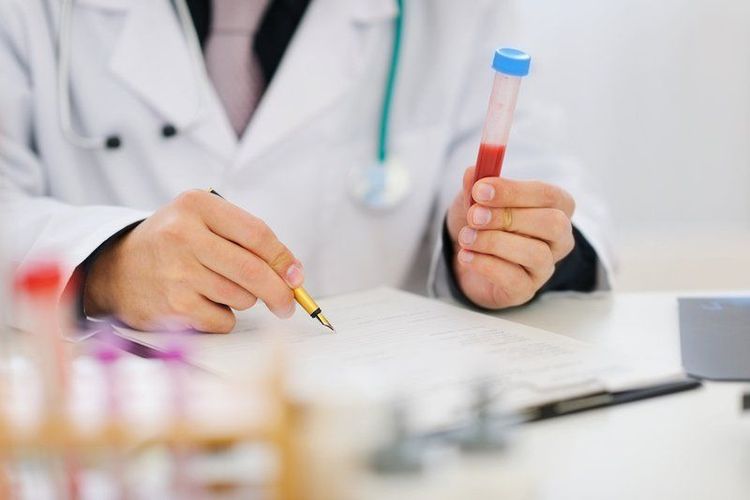
Perform surgery
Gastrectomy: The doctor removes the lower part of the stomach and nearby lymph nodes; When the lower part of the stomach and duodenum is removed, the first part of the small intestine will be exposed and sutured. The remaining part of the stomach is pulled down to the small intestine; Total gastrectomy: The doctor removes the entire stomach; Connects the esophagus directly to the small intestine. 2.4 Complications after gastric bypass surgery for cancer Like any other surgery, gastrectomy carries the risk of complications (pneumonia, urinary tract infection, myocardial infarction,...). Patients with stomach cancer have a higher risk of complications compared with other types of surgery because most patients are often older and have poor general health. Common complications include:
Bleeding; Surgical site infection; Abdominal wall expansion; The rate of fistula oesophageal, small intestine is high, can cause death after surgery; Abscess (collection of pus) in the abdomen; Narrow junction; Surgical site infection; Nutritional disorders after surgery (common in case of total gastrectomy).
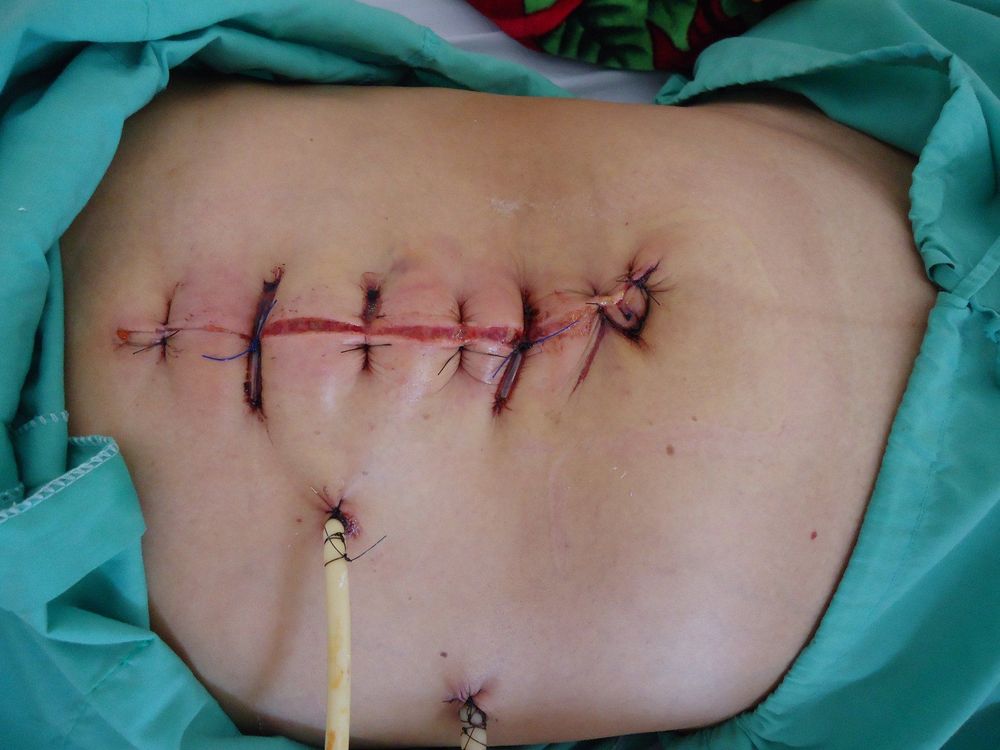
2.5 Recurrence after gastric bypass surgery for cancer To avoid early recurrence, the doctor must determine the exact cut above and below the cancer during surgery; Late recurrence: Cancer of the remaining stomach but appearing from the 3rd year after surgery. Recurrence in the 3rd and 4th years after surgery may be due to incomplete removal of the previous surgery, residual cancer cells in the stomach wall, or a new tumor forming in the remaining part of the stomach, growing separately from the stomach. The malignant tumor was resected. Recurrence later than 5 years is due to the newly formed cancer (cancer cells have been removed but the remaining part of the stomach still contains cancer-causing germs). Recurrence beyond the remaining part of the stomach
Recurrence due to cancer cells metastasizing and invading into the tissues around the stomach. Metastases in the lymphatic system, then metastases through the bloodstream to other organs such as liver, brain, lungs, ... Therefore, when gastric bypass surgery for cancer, lymph node dissection is extremely important. important. The groups of lymph nodes that need to be well dredged include: group of coronary nodes, group of splenic nodes, group of liver nodes.
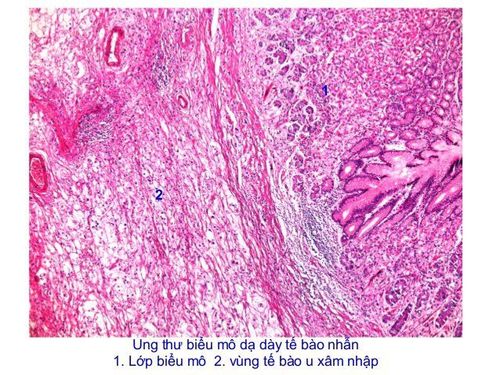
2.6 Notes after gastric bypass surgery for cancer After surgery
The patient is placed a nasogastric tube (a small tube that goes from the nose to the stomach or small intestine) to drain gastric juice out regularly; The patient needs to be fed intravenously until eating and drinking returns to normal. Most patients with gastric cancer after surgery can start eating snacks 4-5 days after surgery; Patients need to take pain medication for a few days and if pain relief is not effective, they can inform the doctor to take another medicine; About 1-2 weeks after gastrectomy, the patient can be discharged from the hospital. Diet
Change your diet, eliminate some foods that cause indigestion; Eat several small meals a day (6 - 8 meals/day) for a long time after surgery. Over time, the rest of the stomach or small intestine will relax, the patient can eat fewer meals and more each meal; Eat slowly, chew thoroughly to make digestion easier; Patients should avoid eating fibrous foods immediately after surgery because it will cause bloating. Then more of this food can be eaten; Eat protein-rich foods: Including meat, poultry, eggs, fish, butter, cheese,... because they provide essential nutrients for the patient's health, slow down the digestion process and prevent disease. diarrhea ; Increase the intake of low-fiber cereals to relax the digestive tract; Eat more fruits and vegetables: Green vegetables should be eaten cooked, fruits should be peeled before eating and removed seeds. Bananas and watermelons are the two best fruits for patients, so they need to be supplemented accordingly; Add milk to the diet, so choose completely skimmed milk; Should eat foods rich in calcium, iron, vitamins C and D after gastrectomy because the stomach plays an important role in absorbing vitamins B12, C, D,... Limit the intake of fermented foods such as: pickles, pickled onions or sour fruits, hot and spicy spices, stimulants and hard foods,...
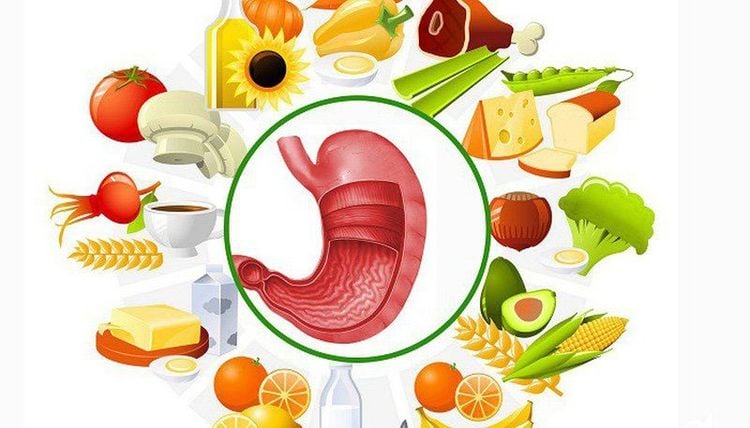
Periodic examination
Check every 3 months, check if there is any abnormal problem or the disease recurs. Tests include clinical examination, gastroscopy, blood tests, abdominal ultrasound and computed tomography.
Gastrectomy for gastric cancer is a life-saving treatment for many patients. During and after surgery, patients need to strictly follow the doctor's instructions to recover quickly and avoid possible complications.
Stomach cancer screening is very important to detect the disease early, making the treatment process less complicated. This is especially important for people at high risk for cancer, who have a family history of cancer. In order to serve the needs of gastric cancer screening of customers, Vinmec International General Hospital provides a Package of Screening and Early Detection of Stomach Cancer, with the following outstanding advantages:
A team of specialized doctors Highly qualified, experienced. Comprehensive professional cooperation with domestic and international hospitals: Singapore, Japan, USA, etc. Comprehensive treatment and care for patients, multi-specialty coordination towards individualizing each patient. Having a full range of specialized facilities to diagnose the disease and stage it before treatment: Endoscopy, CT scan, PET-CT scan, MRI, histopathological diagnosis, gene-cell testing, .. There are full range of mainstream cancer treatment methods: surgery, radiation therapy, chemotherapy, stem cell transplant...
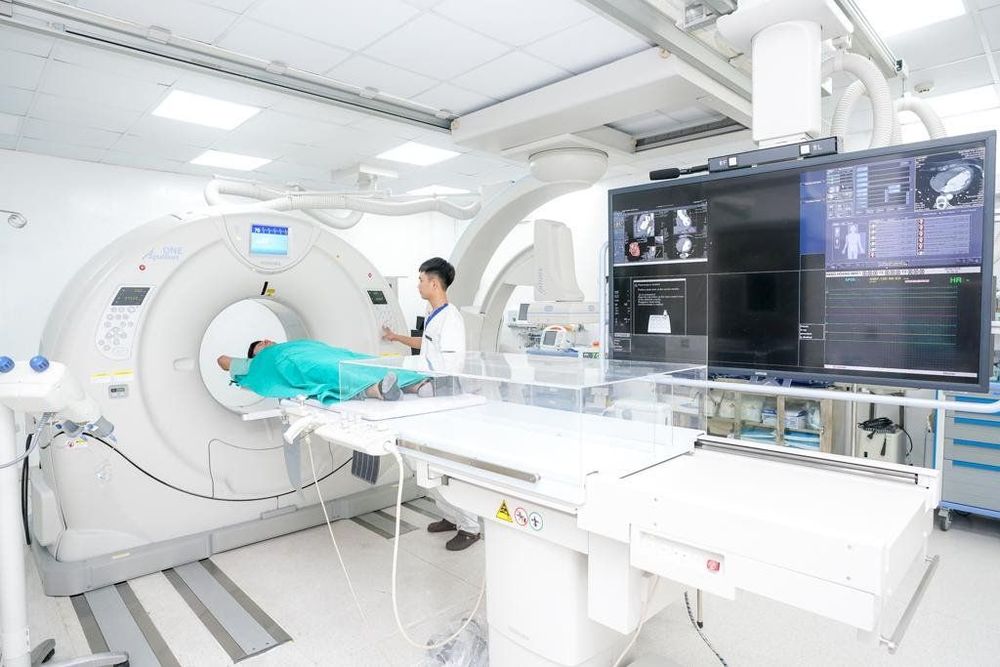
You can come in person or book an appointment online at the Vinmec hospitals that are implementing the Stomach Cancer Screening and Early Detection Package below:
1, Vinmec Times City International General Hospital
Address : 458 Minh Khai, Hai Ba Trung, Hanoi.
2, Vinmec Central Park International General Hospital
Address: 720A Dien Bien Phu, Ward 33, Binh Thanh District, Ho Chi Minh City.
3, Vinmec Hai Phong International General Hospital
Address: Vo Nguyen Giap Street, Vinh Niem Ward, Le Chan District, Hai Phong City
4, Vinmec Ha Long International General Hospital
Address: 10A, Le Thanh Tong, Ha Long City, Quang Ninh
5, Vinmec Nha Trang International General Hospital
Address: 42A Tran Phu, Vinh Nguyen Ward, Nha Trang City
Please dial HOTLINE for more information or register for an appointment HERE. Download MyVinmec app to make appointments faster and to manage your bookings easily.
Recommended video:
Robotic surgery for stomach cancer at Vinmec Hospital
MORE:
Total gastrectomy Laparoscopic gastrectomy and lymphadenectomy Treatment methods for stomach cancer




